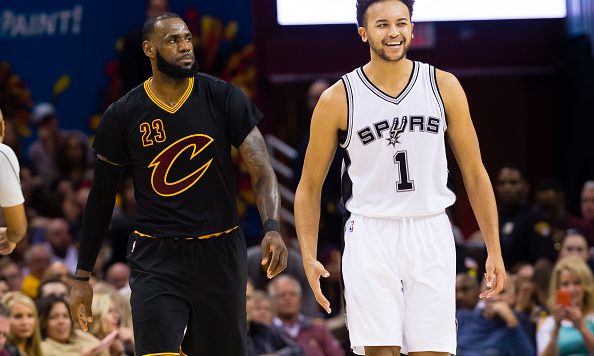The Supreme Court decision of May last year that overturned the 1992 PASPA Act and effectively legalized sports betting in the US, which was more than good news for this popular NJ sportsbook as it had many far-reaching implications, but one of the most immediate is the change that it forced on the nation’s top sports organizations.
For decades, professional sport in the US has been dead set against any association between sport and the gambling industry. The NFL and the NCAA have led the way. Back in the 1960s, the NFL described sports gambling as the number one threat to the sport of football, and the NFL was a strong supporter of the attempt to overturn New Jersey’s sports betting laws, which ultimately led to the steps of the Supreme Court. However, the failure of that legal effort has transformed the landscape and forced a rethink on the part of the previously staunchly anti-gambling sports establishment.
At the beginning of 2019, the NFL, in a significant U-turn, announced a deal with Caesars Entertainment, signing the casino giant up as the NFL’s official gambling partner. That deal made headlines, but the NFL was late to the party. When it comes to taking advantage of the changing gambling landscape, basketball, in the form of the NBA, was way ahead of them.
Back in the summer of 2018, the NBA announced a major deal with casino company MGM to become the league’s first official gaming partner. This marked the first time in the history of US sport that a major league had linked up with a company that provides sportsbook products. The deal itself was worth $25m over a three-year period, which is not a huge amount of money by the standards of the NBA’s revenue streams.
However, the detail of the deal shows that the NBA hasn’t just reluctantly embraced the gambling industry. It demonstrates that the organization has fully thought through the relationship and represents a model for other major leagues to follow as they wrestle with the gambling revolution.
For its money, MGM has got the rights to use NBA logos, along with highlights and, crucially, the access to data for the NBA. However, those rights are not exclusive, which left the NBA the freedom to sell its rights as many times as it wants. Subsequently, the organization announced a deal with gaming company Codere for the Spanish market, and with another sportsbook company, BetStars, both of which are also able to describe themselves as an official gaming partner of the NBA.
This means that gambling fans who head online to bet on sports will also find other gamling sites. There are great sites that offer slots bonuses and other online casino extras like bonusrequired.com. As fans gamble online more, they will also be more exposed to NBA material, which the league and its betting partners hope will drive both interest and wagering on professional basketball in the US.
However, while the exposure of being involved with the NBA is good for any company, the most important part of the package could turn out to be the data. At the moment, not having access to the direct data feed from the NBA does not seem to be a disadvantage for sportsbooks companies, but that could well change. Currently, sports betting is in its infancy, but as it spreads across the US, it is likely that customers will increasingly demand the ability to bet live, as they have in Europe.
When it comes to live betting, access to official NBA data will be crucial for sportsbook providers, both in setting their odds and in providing a responsive, competitive service to in-play betting fans. Having access to the fastest and most reliable data feed could give a betting company a big advantage, and the NBA has spotted the potential for revenue from this source early on.
It also represents a notable shift in emphasis from the NBA. In the early months of legalized sports betting, the organization, like the other major leagues, was pushing the idea of an “integrity” fee – a payment extracted from gambling companies in exchange for the right to use the organization’s data. That proved to be particularly unpopular with gambling companies, so the shift to selling the rights to access that data in a wider gambling partnership package looks like a more constructive approach.
As a result of its policy shift, the NBA has been able to do further deals with betting and sports data companies, including Genius Sports and Sportradar, positioning itself as the most progressive of the major leagues and the one best-placed to capitalize on the sports betting revolution.




















